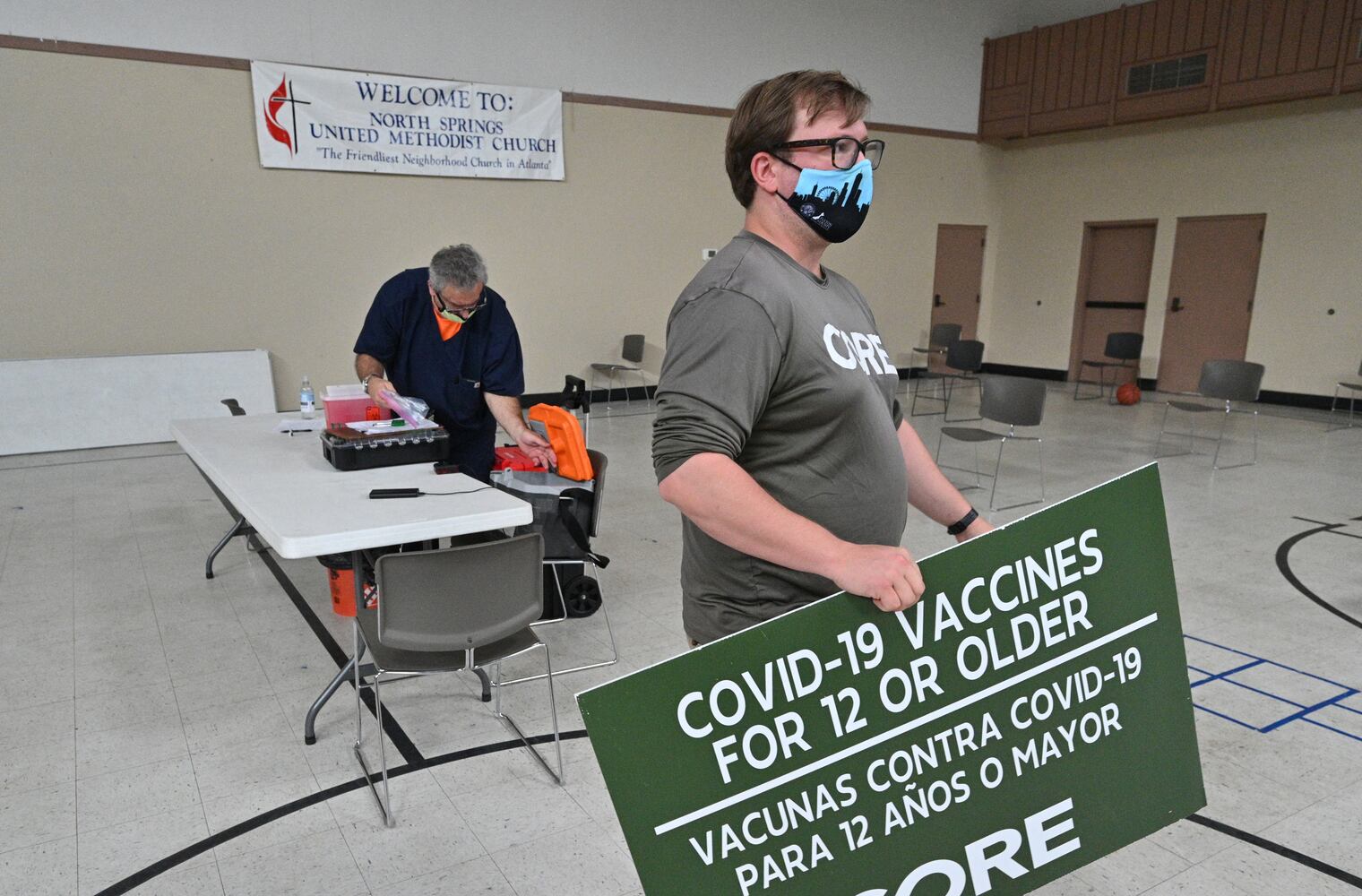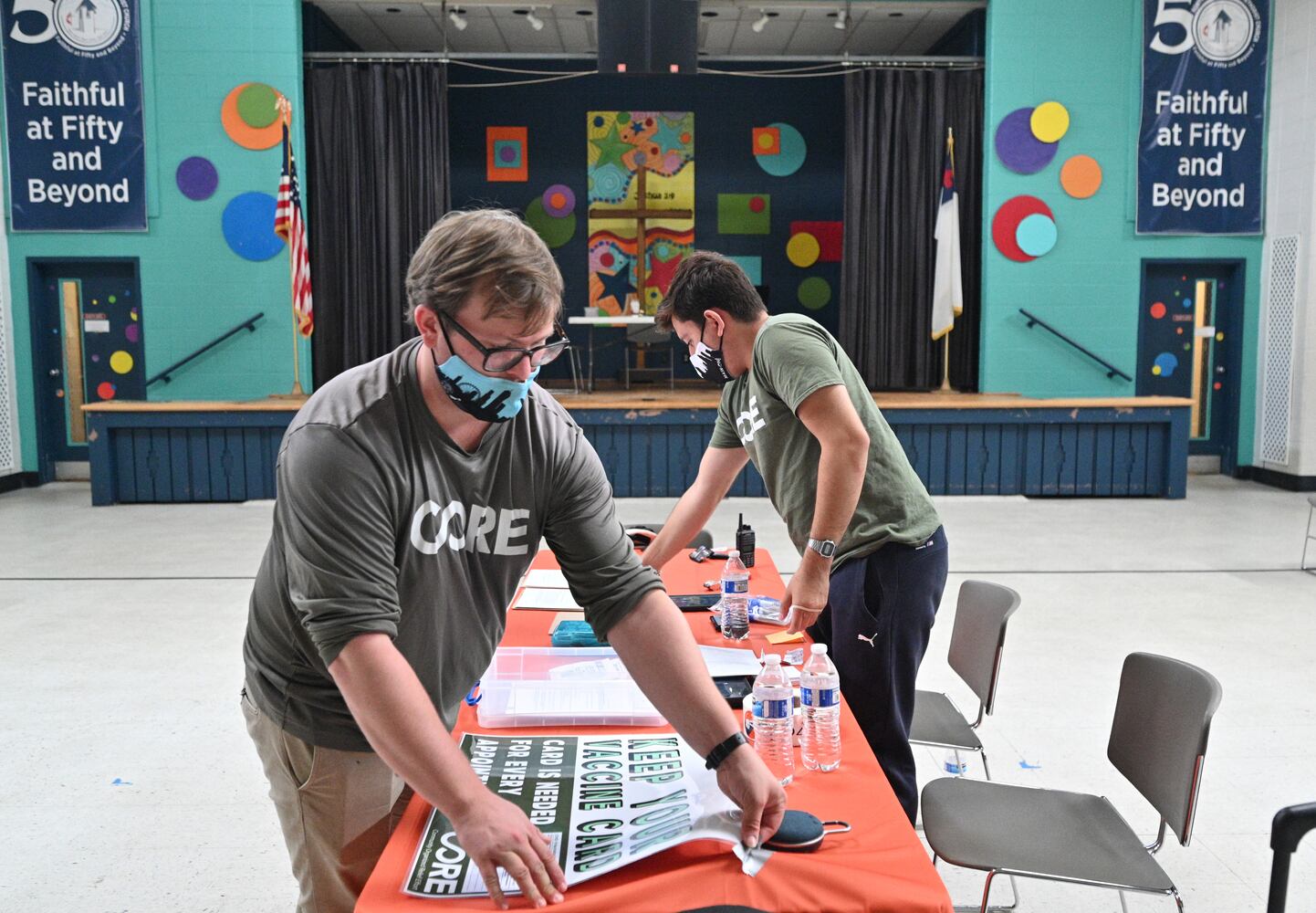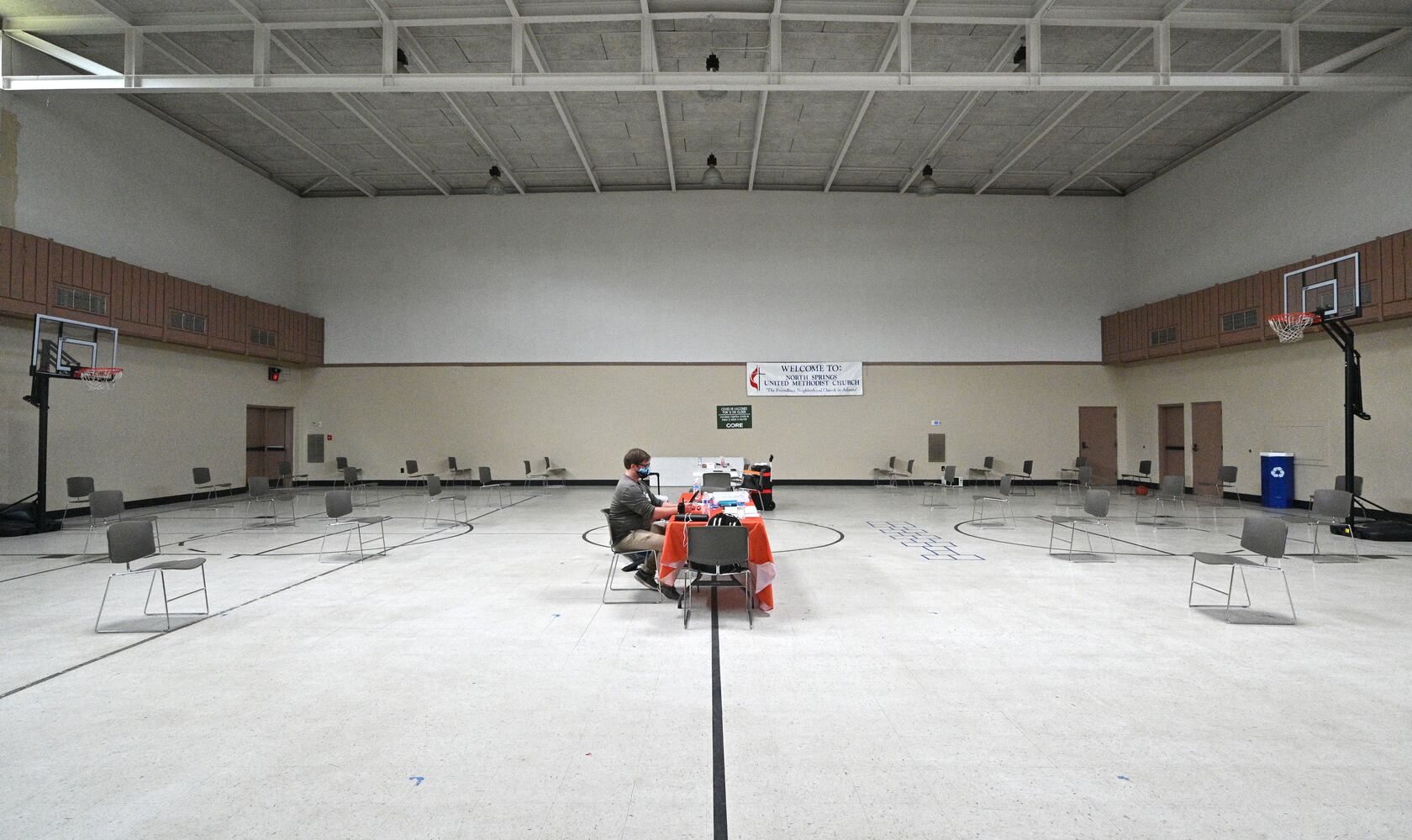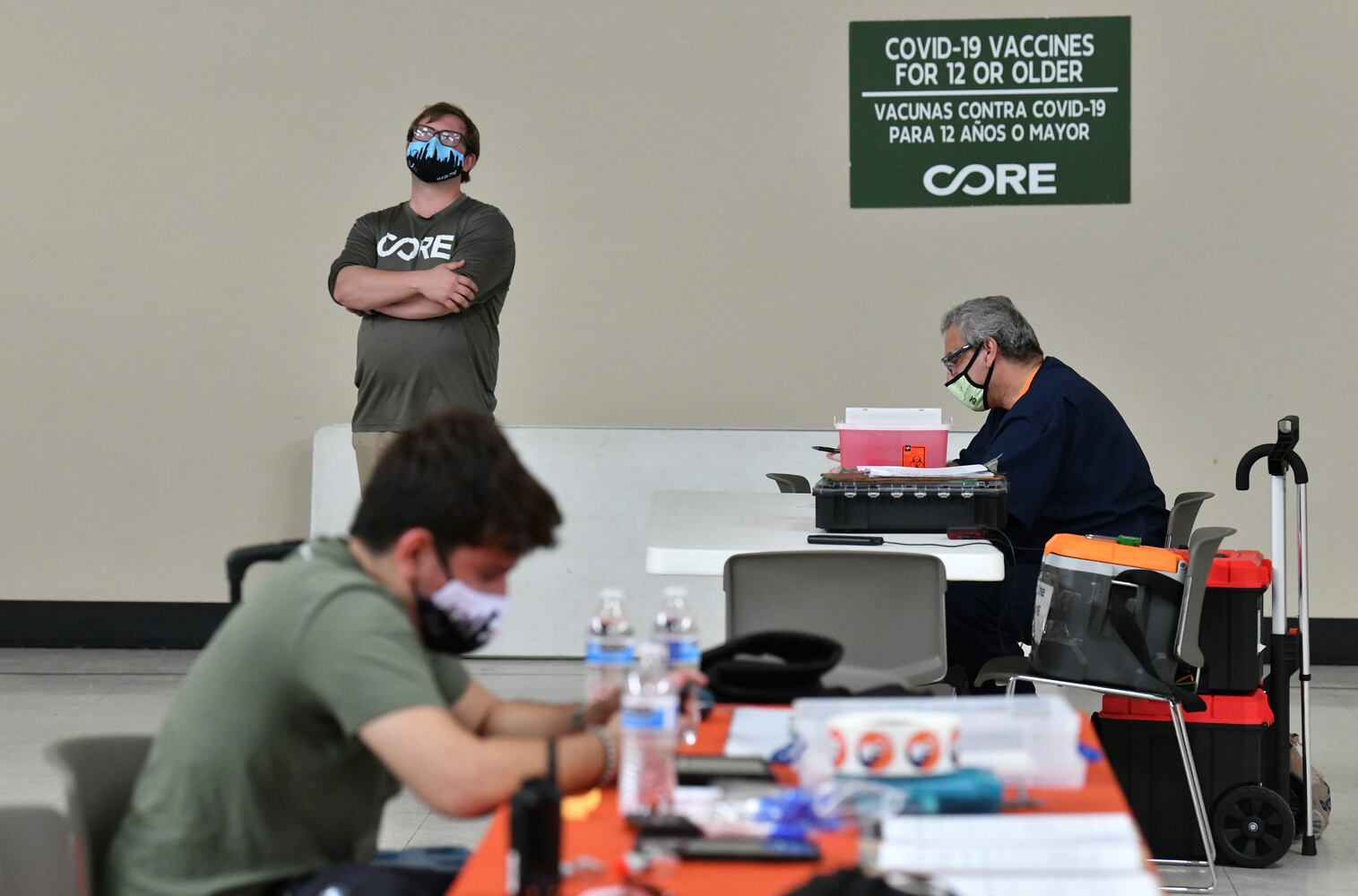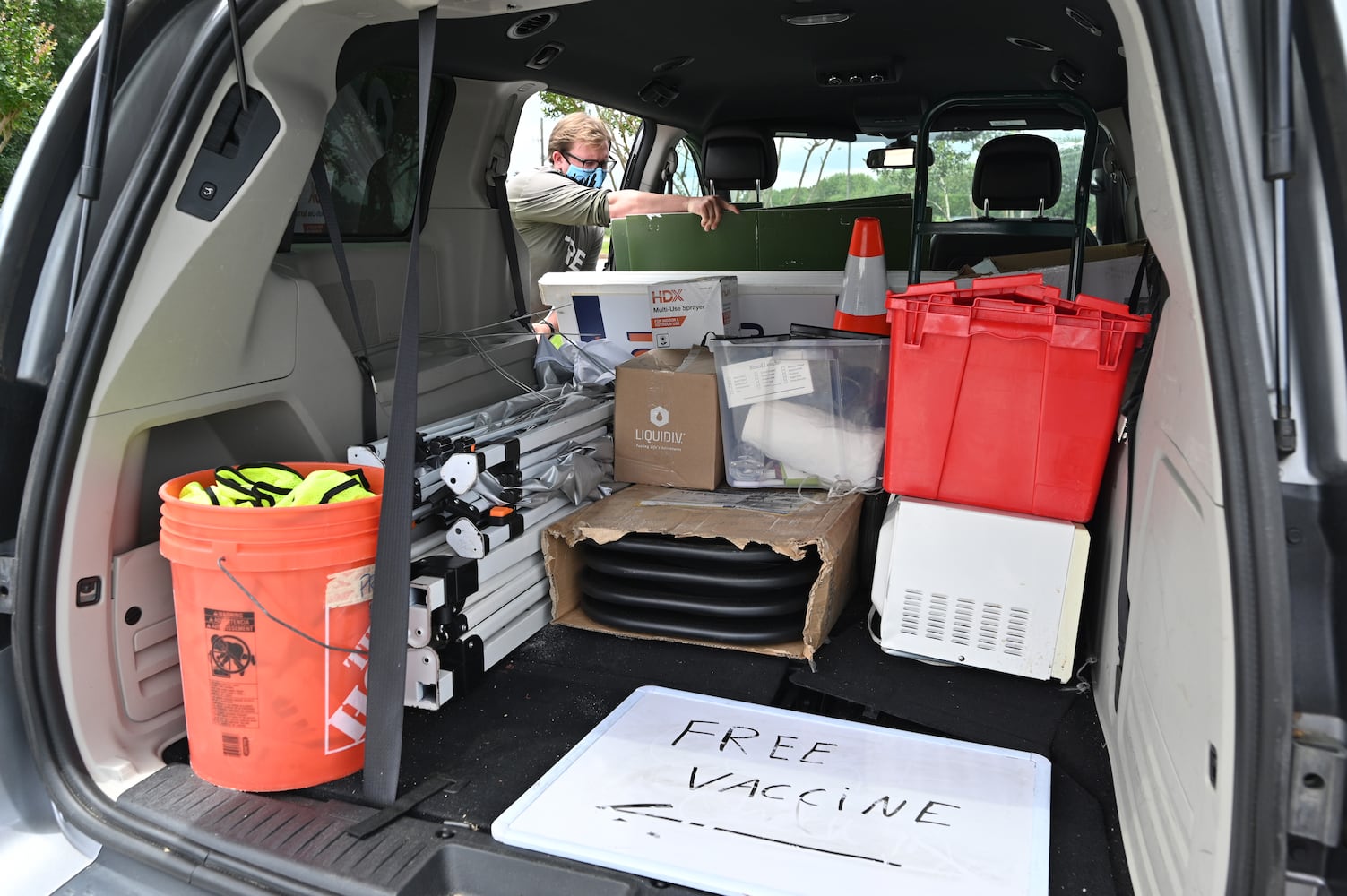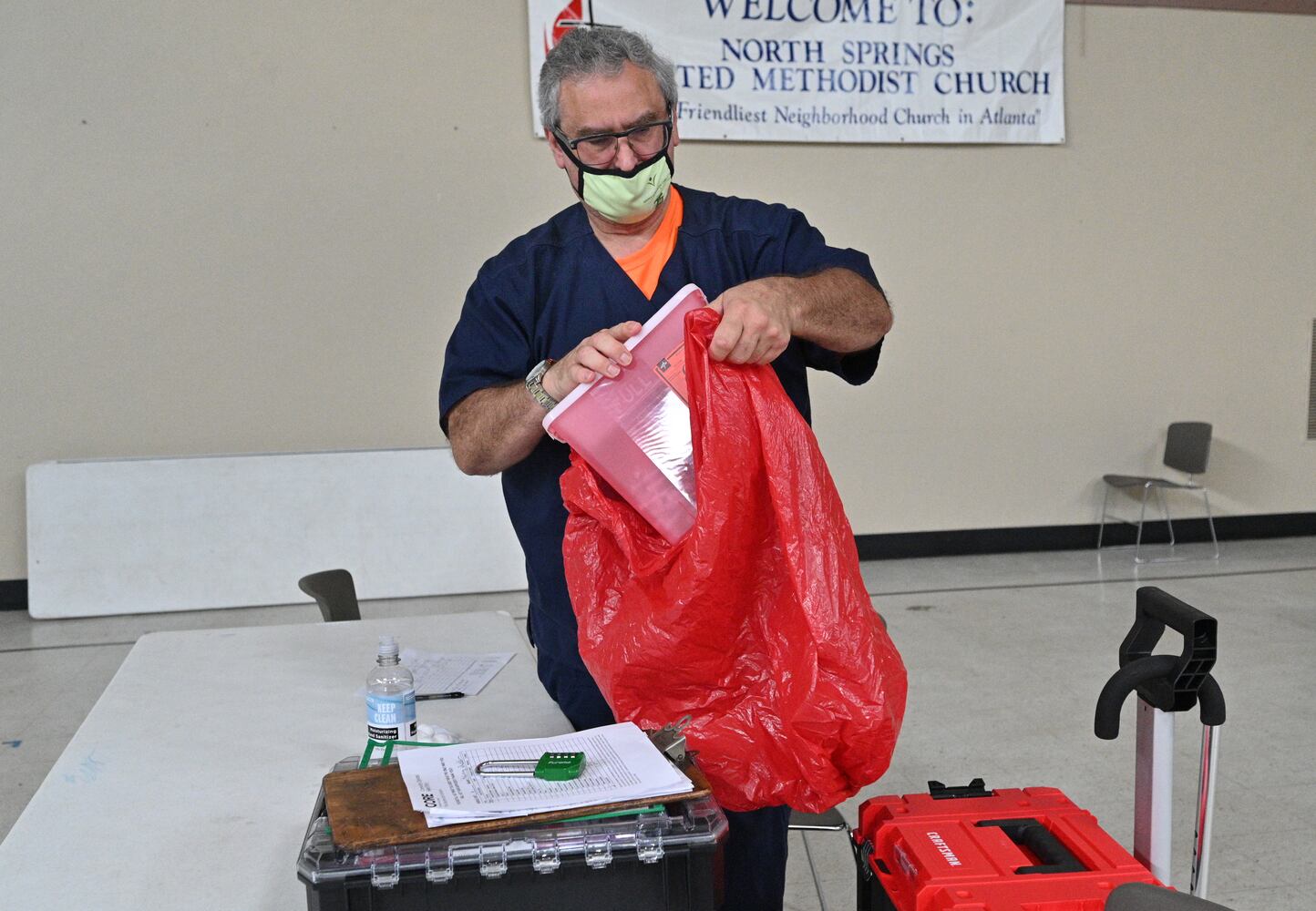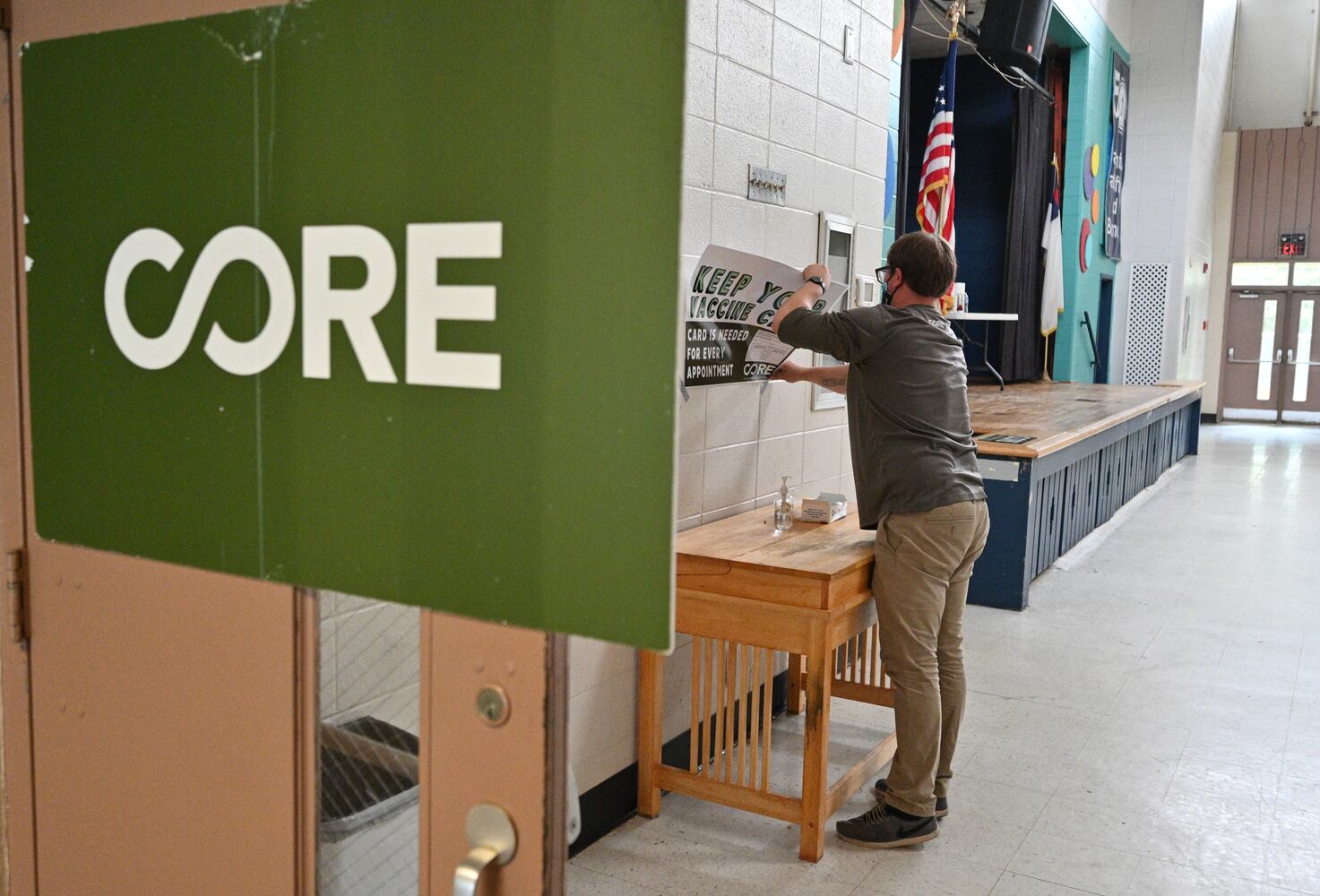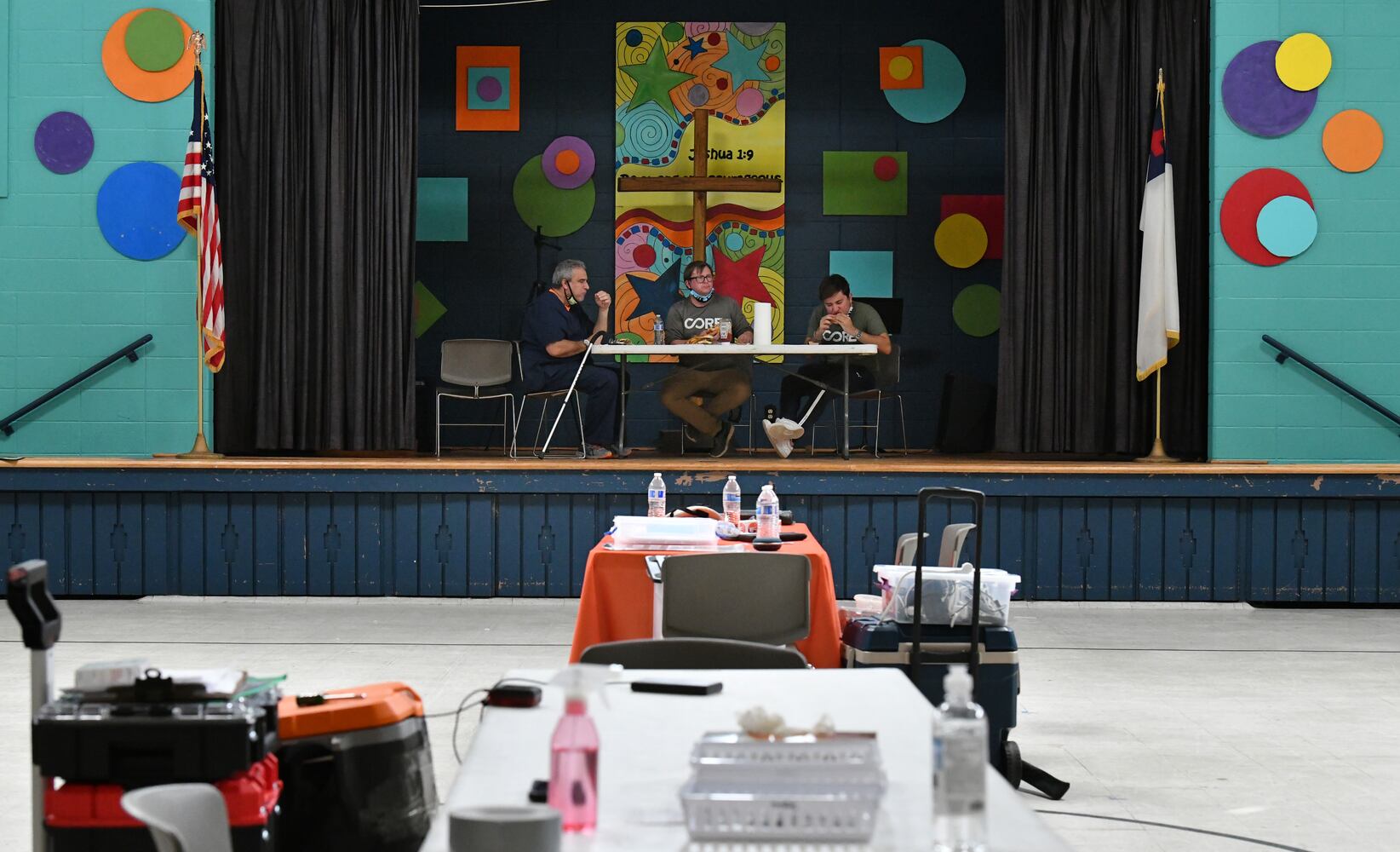As a highly contagious delta variant spreads in Georgia, the number of coronavirus cases and hospitalizations is ticking upward, particularly in pockets with low vaccination rates, state data shows.
The increases are only slight so far, but they mirror trends seen in other states where hospitals are filling up again.
“As far as this goes, it could be a surge. We need a little bit more time to know for sure,” said Amber Schmidtke, a public health researcher who has been tracking Georgia’s cases. “But I do get concerned when you see multiple things start to tick up, like seeing cases as well as hospitalizations.”
Public health officials are concerned about the rise of the delta variant, which was first identified in India in December and detected in Georgia in May. People who haven’t been vaccinated are most at risk. But people who have only had one dose of the two-dose Pfizer and Moderna vaccines are also vulnerable.
Making matters worse, the pace of vaccination has slowed to a crawl in Georgia, while pandemic restrictions are ending and masking and social distancing fade.
Overall, only 37% of the state’s total population (which includes children under 12 not yet eligible to get the vaccine) has been fully vaccinated, compared to 47.6% of the population nationwide, according to data from the Centers for Disease Control and Prevention.
Dr. Felipe Lobelo, a Kaiser Permanente of Georgia epidemiologist, described current conditions as a tale of two pandemics.
“For those people living in low vaccination rate areas, it is like having no protection around you,” he said. “People tend to cluster, so if your family and neighbors and people around you have low vaccination rates, the risk is the same or even higher than it was back in January.”
Credit: HYOSUB SHIN / AJC
Credit: HYOSUB SHIN / AJC
Spreads ‘in a matter of seconds’
The delta variant now accounts for 51.7% of new infections in the US, according to estimates by the CDC, which is based on genomic surveillance. The B.1.1.7, or Alpha variant, which was first detected in the United Kingdom and has dominated for months, now accounts for 28.7% of cases.
For Georgia and other states in the region, estimates by the CDC for the delta variant is at about 35% of all new infections. But that percent is likely higher, given that the surveillance in Georgia has been limited, experts said.
Overall numbers of coronavirus cases and hospitalizations in Georgia remain low — down more than 90% from their January peaks. Health officials said recent increases for both are reasons for concern, especially considering that infections over the Fourth of July weekend have yet to show up in the data.
Lobelo said new research suggests the delta variant can spread in a couple of minutes, maybe even a matter of seconds. He pointed to Sydney, Australia, where several people were said to have been infected in “fleeting” non-physical contact in a mall.
If delta is that contagious, the strain could end up having the tragic effect of pushing the nation to the herd immunity that President Joe Biden has been hoping to reach through vaccinations, Schmidtke said.
“Everybody is going to be exposed with delta,” she said. “And so it’s really a question of, do you want to get to immunity taking all the risk that goes with a natural infection, or do you want to get to immunity with the vaccine, which we know is safe and effective?”
The 7-day-rolling average of probable and confirmed coronavirus cases in Georgia was 495 Thursday, up from 347 on June 25. That’s a 43% increase. On Thursday, COVID-19 patients made up about 3.3% of those hospitalized in Georgia.
At times in January, greater than one out of three patients in Georgia hospitals suffered from COVID-19. But the share of COVID-19 patients is up from 2.8% a week ago. Georgia has also seen growth in COVID-19 patients in at least six of its 14 hospital districts, including two in the metro Atlanta area.
Millions unprotected
Vaccination rates are staggeringly low in some rural Georgia counties. And several counties with low rates are seeing marked increases in cases, according to data from the Georgia Department of Public Health.
For example, Troup County, along the Alabama border, has just 25% of its residents fully vaccinated, and saw its weekly confirmed COVID cases jump from 7 to 32 from late June to early July. Lowndes County, in South Georgia, has 26% of its residents fully vaccinated, and its weekly cases in that period increased from 6 to 44.
The DPH hospital region that covers the Georgia coast had 10 COVID-19 patients in all its hospital facilities on June 19, according to state data. As of Thursday, that number had quadrupled to 40.
A dozen coronavirus patients were at Southeast Georgia Health System’s hospitals in Brunswick and Camden County — up from just three patients a few weeks earlier, president and CEO Michael D. Scherneck said.
Scherneck said none of the patients being treated have been vaccinated, and most are under the age of 55.
While the CDC has said it’s safe for vaccinated people to take off masks and stop social distancing in most circumstances, it only takes a walk through a big-box store to see the problem, Scherneck said.
“Maybe half the population’s been vaccinated, but 95% of the people are walking around without masks,” he said. “I wish people would realize that this is not just one of those things that’s going to go away on its own. Just because everybody else got shots doesn’t mean that you’re protected.”
On the other side of the state, the hospital region that includes Columbus got down to 33 patients two weeks ago, but reached 47 on Monday. On Thursday, the total was 45.
“We’ve definitely seen an uptick over the past week or so, albeit slight,” said Dr. Chris Edwards, chief medical officer of Piedmont Columbus. “It’s still a pretty low number, comparably, to where we were in the past. It’s probably about a tenth of what we were seeing at the height of the pandemic.”
Even so, case counts are moving in the wrong direction. In metro Atlanta, some counties including Fulton and Gwinnett are seeing slight increases in cases over recent days.
Asked if the state should be alarmed, Edwards said, “I think the best answer to that question is to get everybody vaccinated. That should be the overwhelming approach to this, and if we continue to vaccinate everybody, then my level of alarm is certainly not going to go up as high.”
Staff writer J. Scott Trubey contributed to this report.
COVID-19 vaccinations and delta variant
The COVID-19 vaccine is considered highly effective against currently circulating variants, including the delta variant.
In rare instances, people can get infected with COVID-19 after vaccination. But when this happens, symptoms tend to be nonexistent or mild.
Also, vaccinated individuals who become infected have lower viral loads than unvaccinated people — and therefore less likely to transmit the virus.
The available vaccines, even if slightly less effective against variants, appear to stave off severe disease from circulating variants, the experts stress.
Nearly all COVID-19 deaths in the U.S. now are in people who weren’t vaccinated, which shows just how remarkably effective the shots have been. An Associated Press analysis of government data from May shows that more than 99% of the 18,000 COVID-19 deaths in May were in unvaccinated people.
It’s important to complete vaccination regimens to maximize protection from catching and spreading the virus. The Johnson & Johnson vaccine is one shot, while the Pfizer or Moderna vaccines require two.
Pfizer and BioNTech said Thursday they are working on a COVID-19 booster shot, which could enhance protection against the delta variant. However, the Food and Drug Administration and the CDC said in a joint statement that Americans who have been fully vaccinated do not need boosters at this time.
The Latest
Featured
